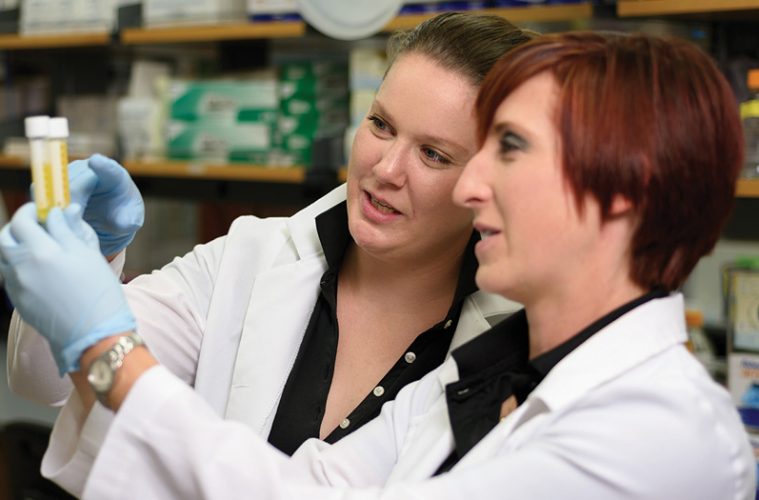Since 1983, the Grayson-Jockey Club Research Foundation has provided $26.3 million to fund some 358 projects at 43 universities, all dedicated to helping horses of all breeds. Many of the studies are two-year projects, and the average cost of the research today is $200,000 per project, about double the amount spent at the turn of the century.
The health of a horse is everyone’s problem, from owners to trainers, riders, and transport staff. An arch example of how a single research project can be beneficial to all those participants was a project that Grayson funded that showed shipping horses in box stalls led to less shipping fever and coughing.
Each year, funded research focuses on the impact and the quality of a wide range of equine health issues. Areas of research have included infectious disease, reproduction, laminitis, colic, respiratory, and musculoskeletal issues.
Formed in 1940, the original Grayson Foundation was named after Admiral Cary Grayson, who was the personal physician to President Woodrow Wilson. Grayson was president of a foundation that assisted in the promotion of research for horses. The Jockey Club was an early supporter of that venture and helped raise part of the $100,000 seed money. From the beginning, the mission of the organization was to fund research at existing institutions rather than carry out research itself. Prominent equestrians have ensured the success of the foundation through the years with their generosity.
A 32-member research advisory committee (RAC), made up of researchers and practicing vets from across the country, meets annually to evaluate all submitted proposals. The best are then recommended to the board of directors, which makes the final decisions. The foundation’s expectation is that any funded projects produce at least one peer-reviewed published article. Of 195 completed projects since 1999, all have met this criterion.
The annual process for awarding grants begins each October 1, the deadline for applications. All research is done through universities, so that there are no lab set-up costs. Proposals are scored on scientific merit, feasibility, budget, impact, and grant writing. The RAC discusses each project, which is eventually scored and then rated head-to-head against other projects until all recommended projects are ranked in order. If a proposal needs adjusting in the eyes of the reviewers, it may be resubmitted the following year.
In addition to supporting today’s equine research community, the foundation issues two career-development awards to prospective researchers each year. Lucy Young Hamilton and Richard Klein have stepped forward with initiatives aimed specifically at aiding young researchers. Hamilton, through the Storm Cat Award, and Klein, through his family’s foundation and in honor of parents, Elaine and Bert Klein, have bolstered the salaries of post-residency doctors working toward a Ph.D. The foundation solicits and evaluates proposals from these career development awards. Of 13 doctors who have received awards, 11 are still doing equine research, helping fill the pipeline with the next generation of researchers.
Grayson adheres to the philosophy that research fosters the health and soundness of all horses, from those in an individual’s backyard to those in a top trainer’s stable.

